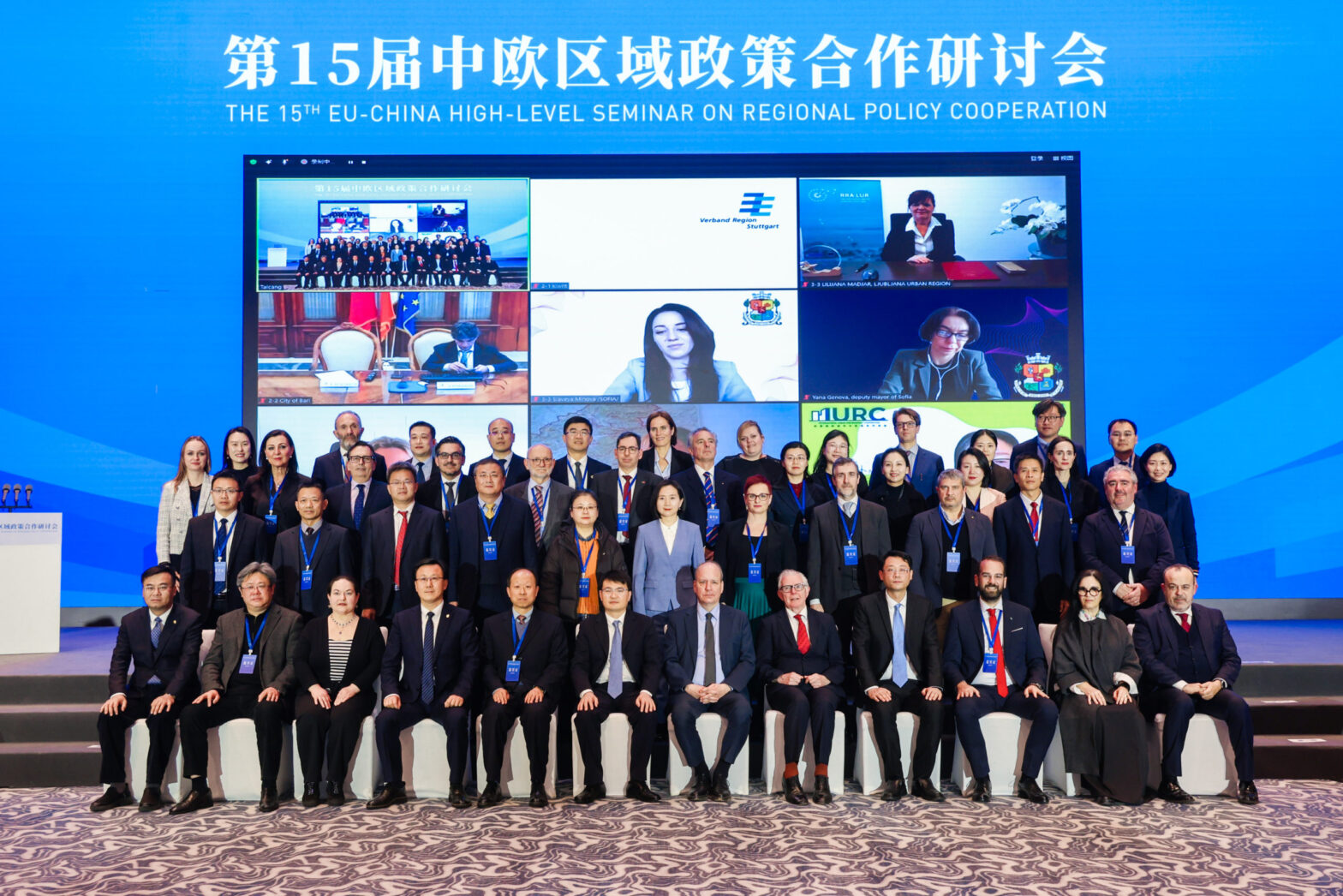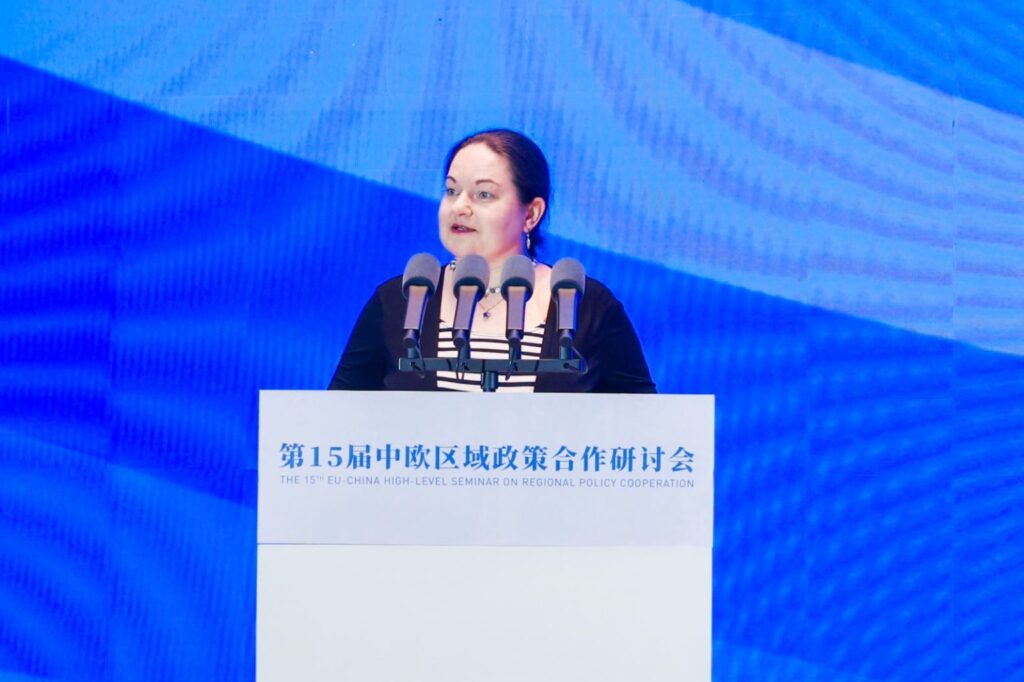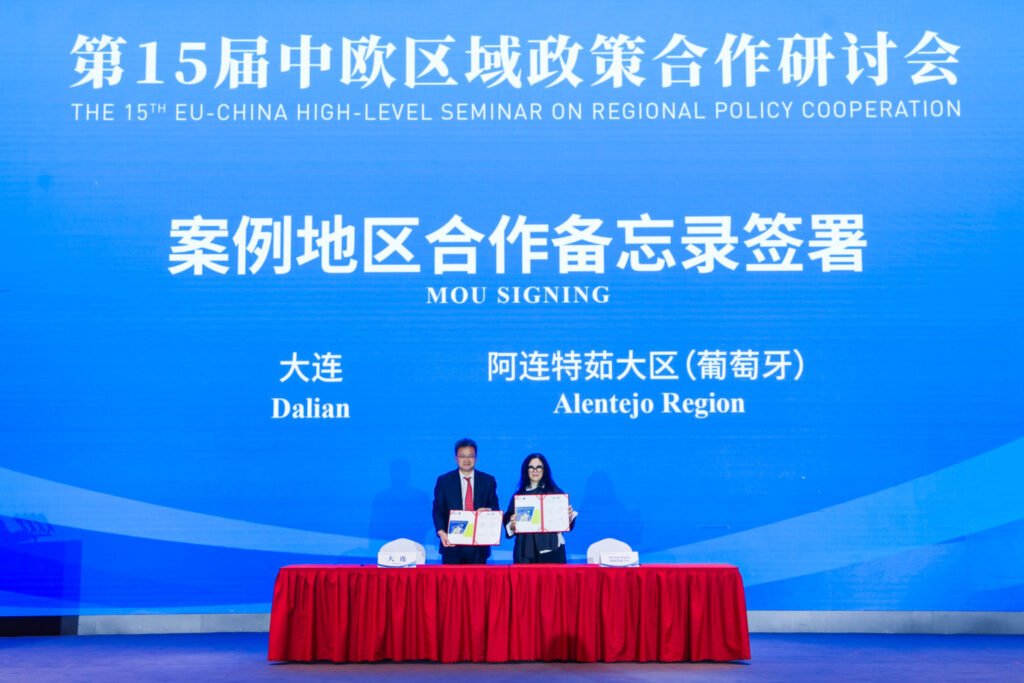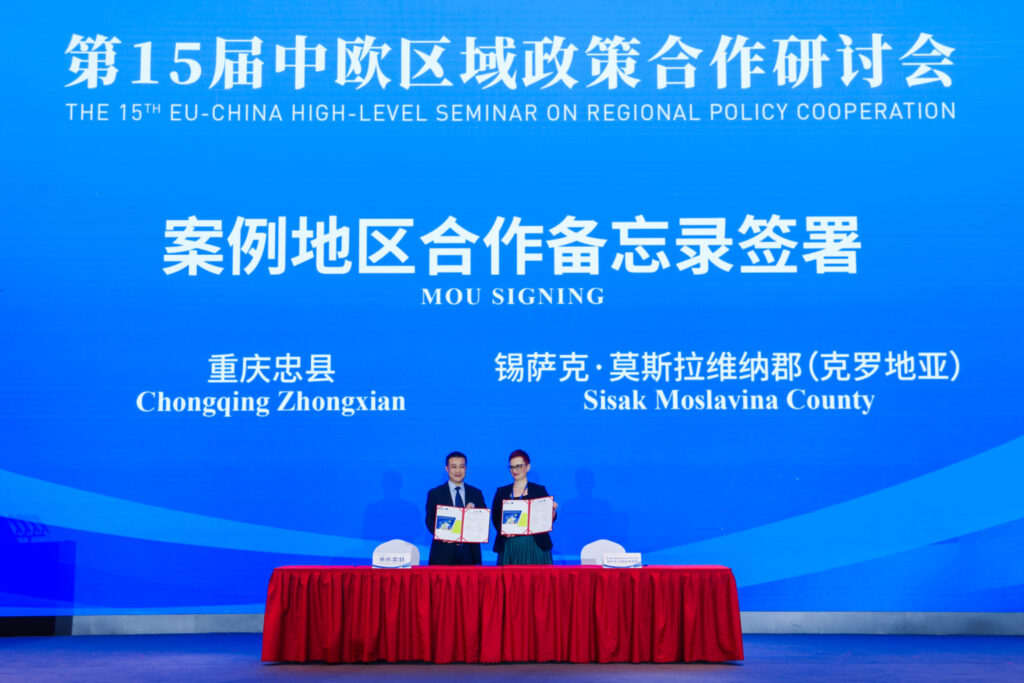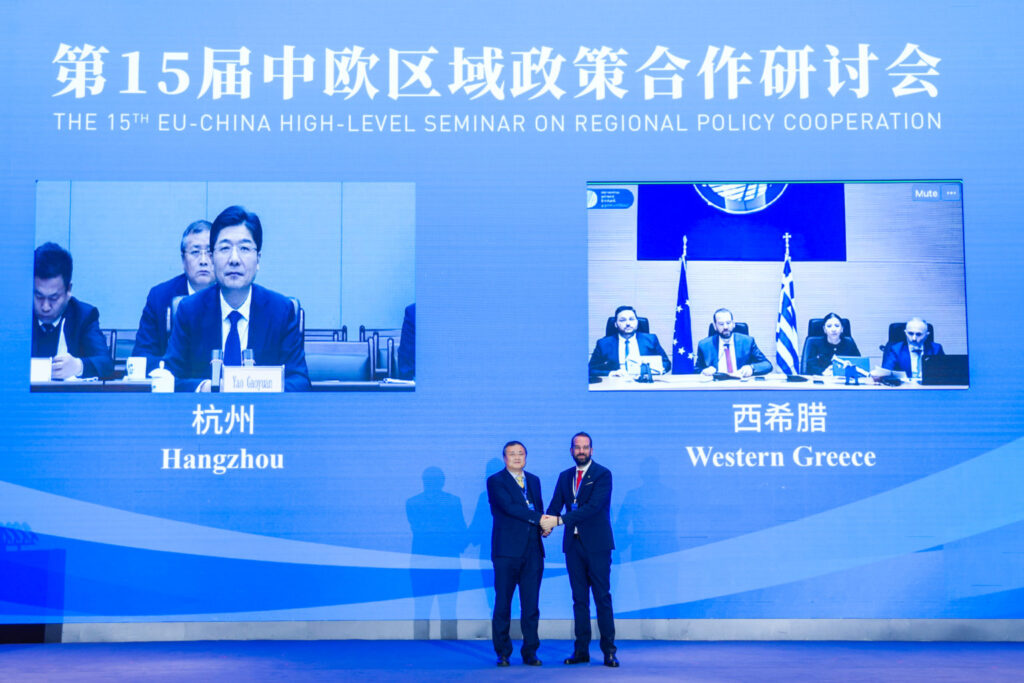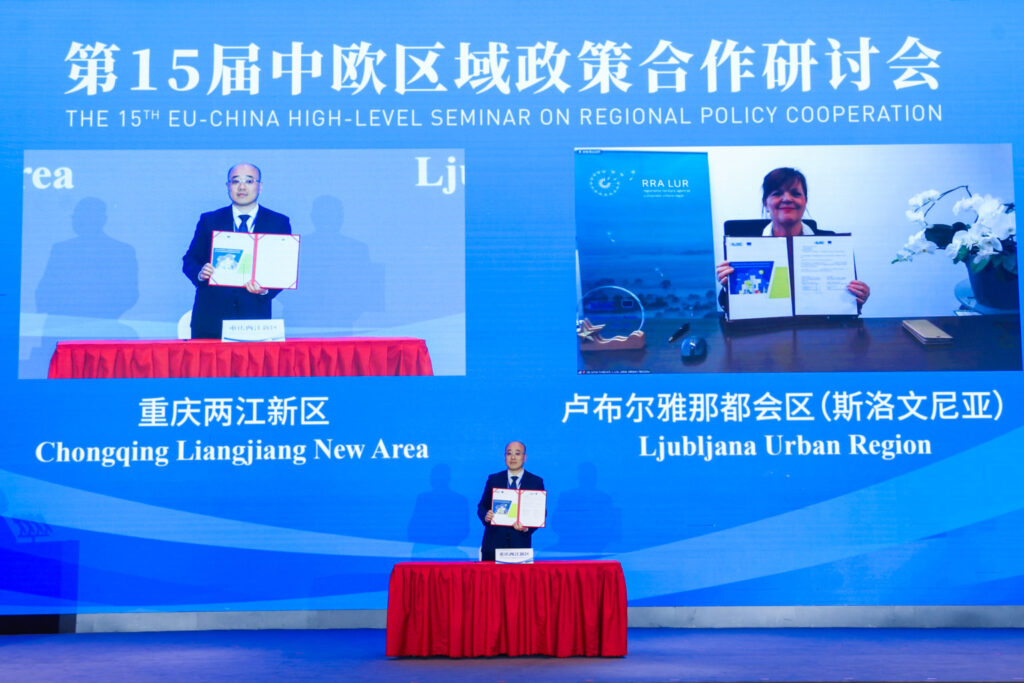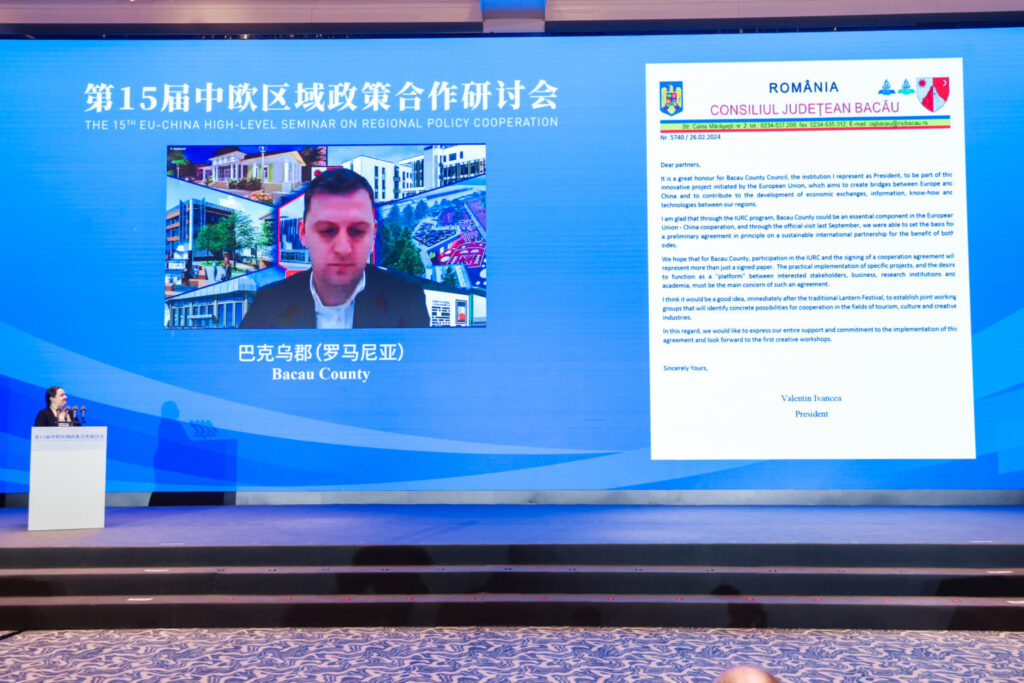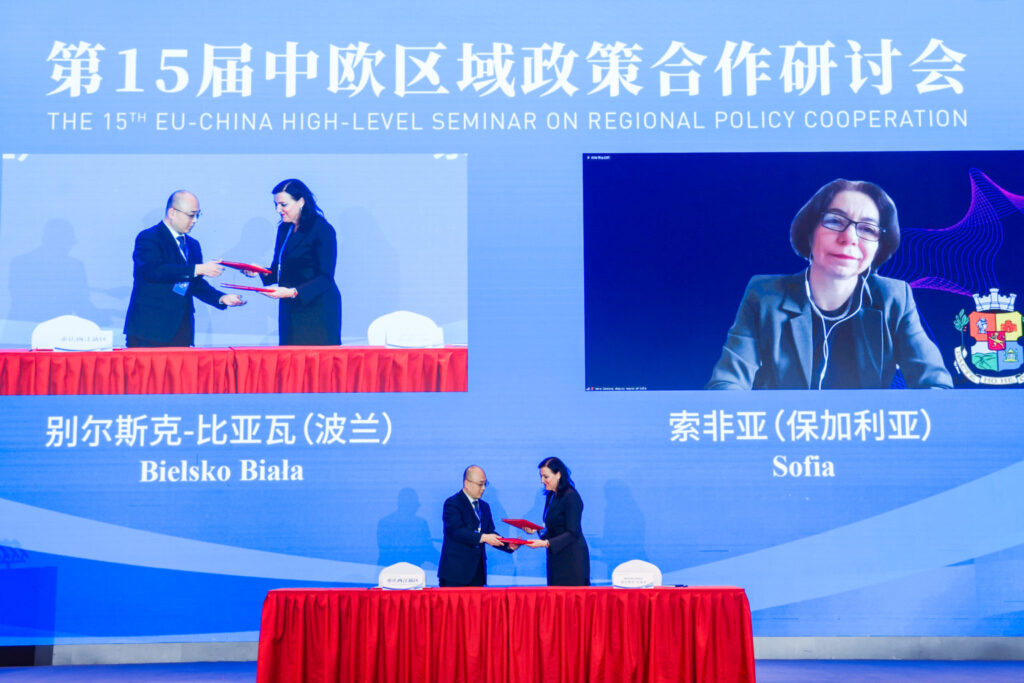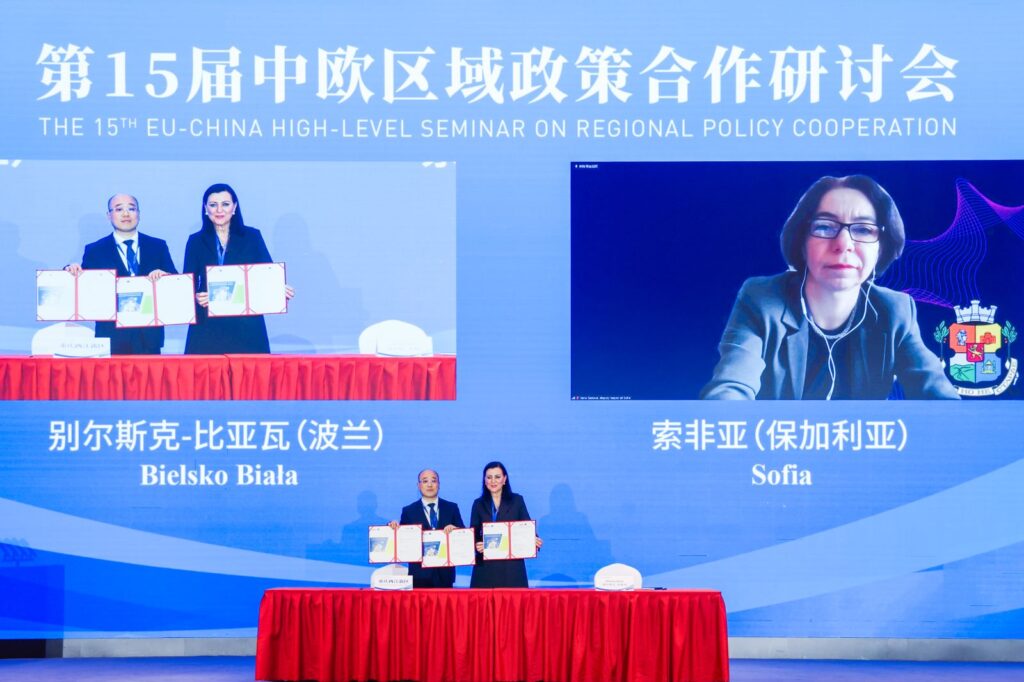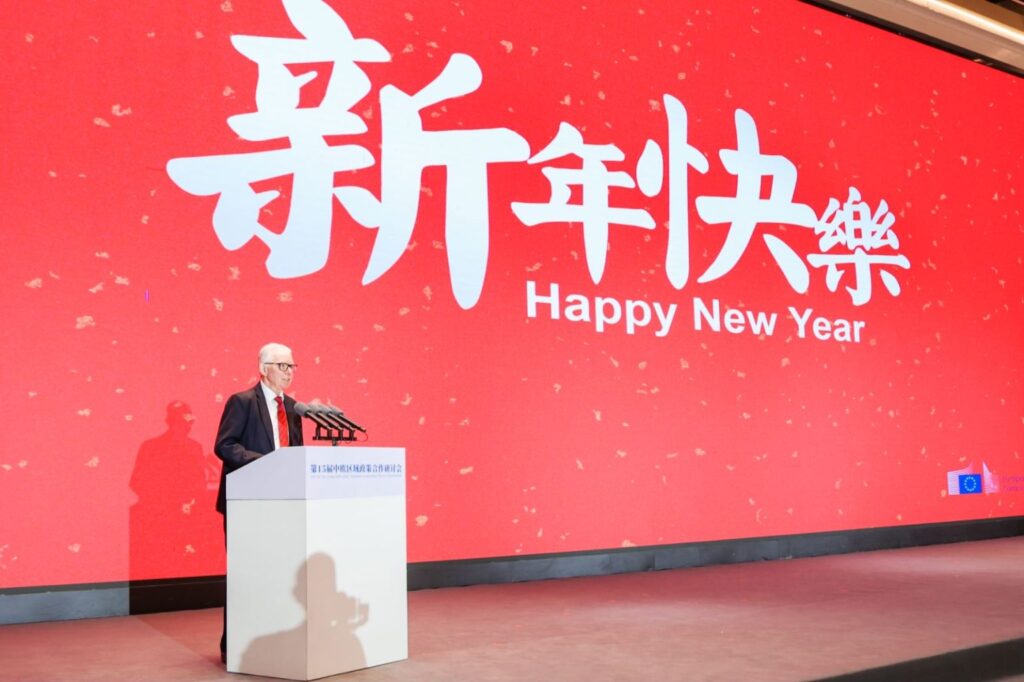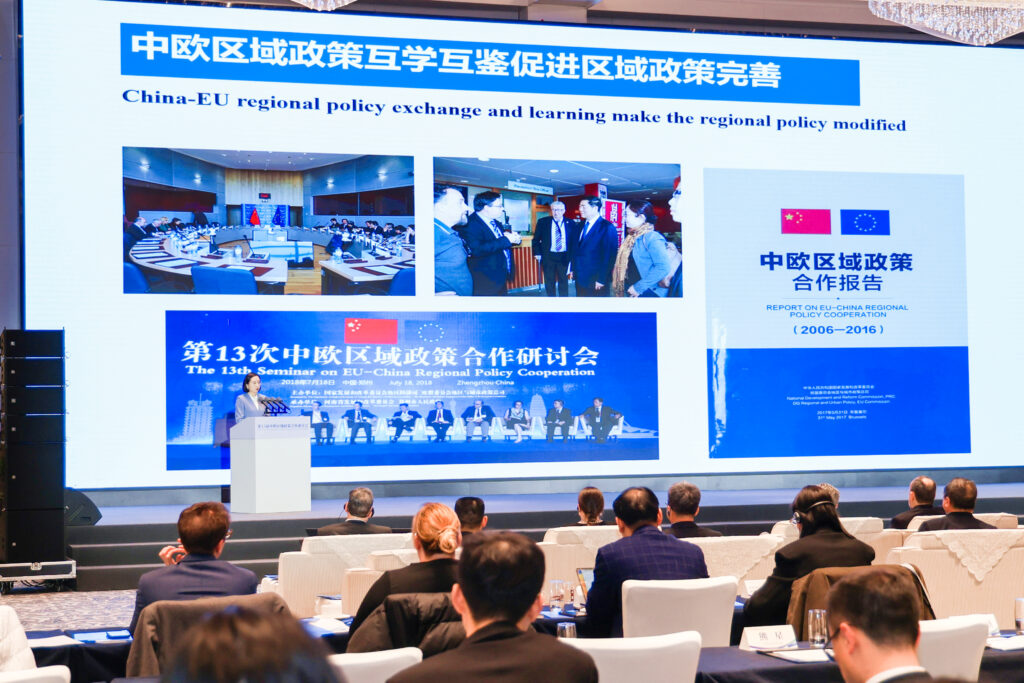Sustainability, Cooperation, Green Growth and Urban Transformation are terms beyond concept to embody the core of forward-thinking strategies in IURC-China. The concluding event, the EU-China High-Level Seminar on Regional Policy dated 27th March 2024, echoed not only the ambitions and goals but also concrete and pragmatic approaches through collaborative learning and partnerships among over 40 European and Chinese cities and regions that participated in IURC-China.
In the past three years, IURC-China has paved the way for cities and regions to engage with their peers in the EU and China. The cooperative initiatives aimed at fostering capacities in three thematic networks: Ecological Transition & Green Deal, Urban & Regional Renewal and Social Cohesion and Innovative Sustainable & Carbon-Neutral Ecosystems and Strategic Sectors. The outcomes of the IURC have been collaborative, creative, and impactful, from enhancing agri-food supply security and increasing urban resilience to mitigating climate change in urban infrastructure and internationalising local SMEs. By facilitating long-term connections between peers in EU and Chinese cities and regions, the IURC-China has been endeavouring for international cooperation in addressing the challenges of our time.
United in Progress for Building a Common Future
Opening the EU-China High-Level Seminar on Regional Policy Cooperation, XINAG Wei, Deputy Director-General of the Regional Coordination Department of the National Development and Reform Commission, and Matthias Lenz, Deputy Head of the European Union Delegation to China, reflected on the remarkable journey and successes achieved through the EU-China cooperative endeavours. Both leaders expressed optimism for the future, envisioning continued cooperation and mutual understanding through exchanges and face-to-face dialogues, under initiatives like IURC.
XIANG Wei expressed profound gratitude for the relentless efforts made by all stakeholders in fostering EU-China regional policy cooperation. He highlighted the importance of a global transition towards peace, sustainable development, and win-win cooperation. “This initiative is a flagship project among the many cooperation areas and mechanisms between China and Europe,” Mr. XIANG Wei stated.
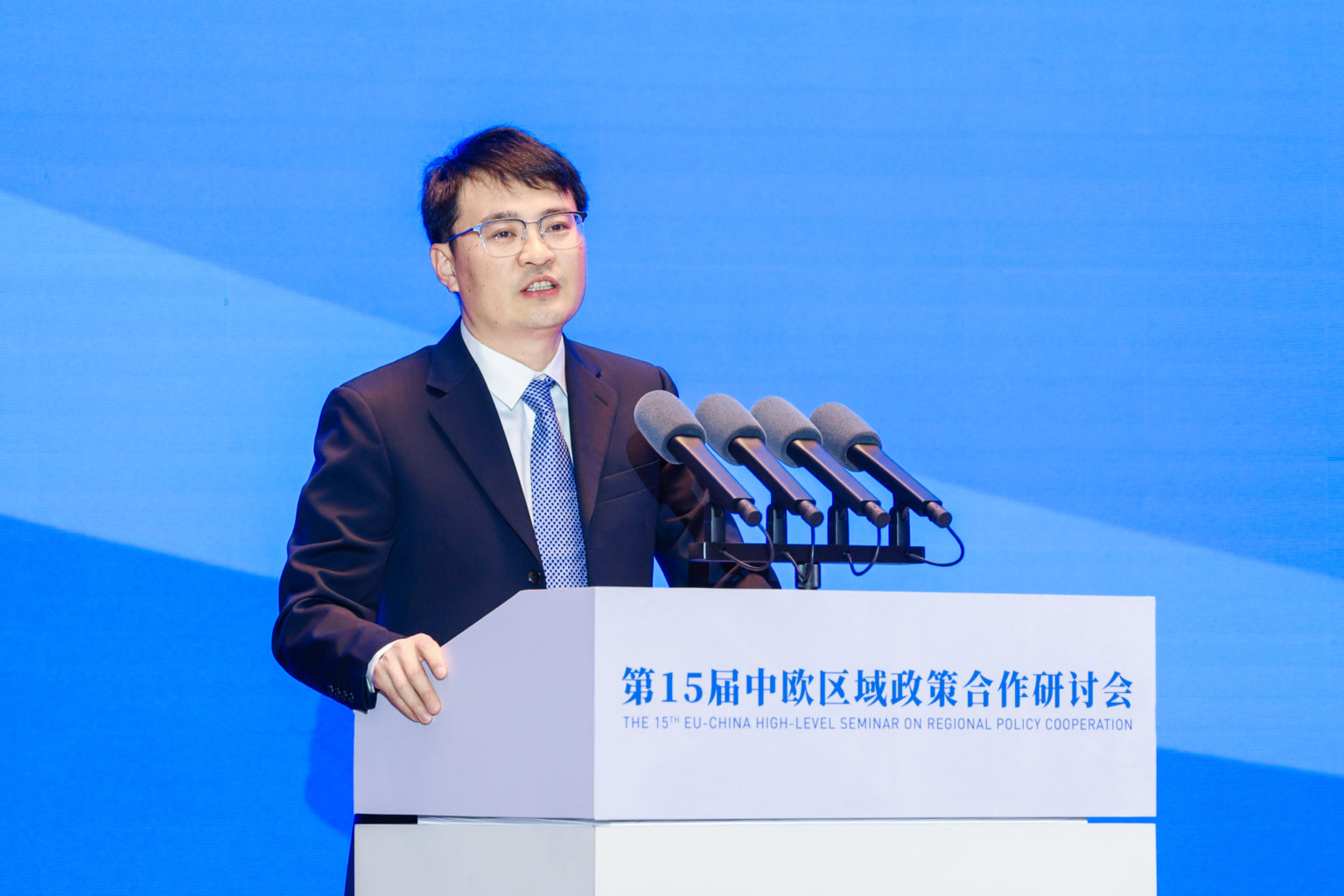
Matthias Lenz, reflected the strategic partnership between the EU and China, acknowledging the role of cities and regions in advancing sustainable, green, and resilient futures. He emphasised the importance of mutual understanding and dialogue to foster bilateral relations and achieve concrete outcomes. “Cooperation at the city and regional level is not only crucial in addressing global challenges but also in making our future more sustainable, greener, and resilient.” Lenz Remarked, highlighting the achievement of IURC-China, “Under the IURC program, we have actively mobilised pilot cities in Europe and China to use this framework for regional development and ongoing innovation.”
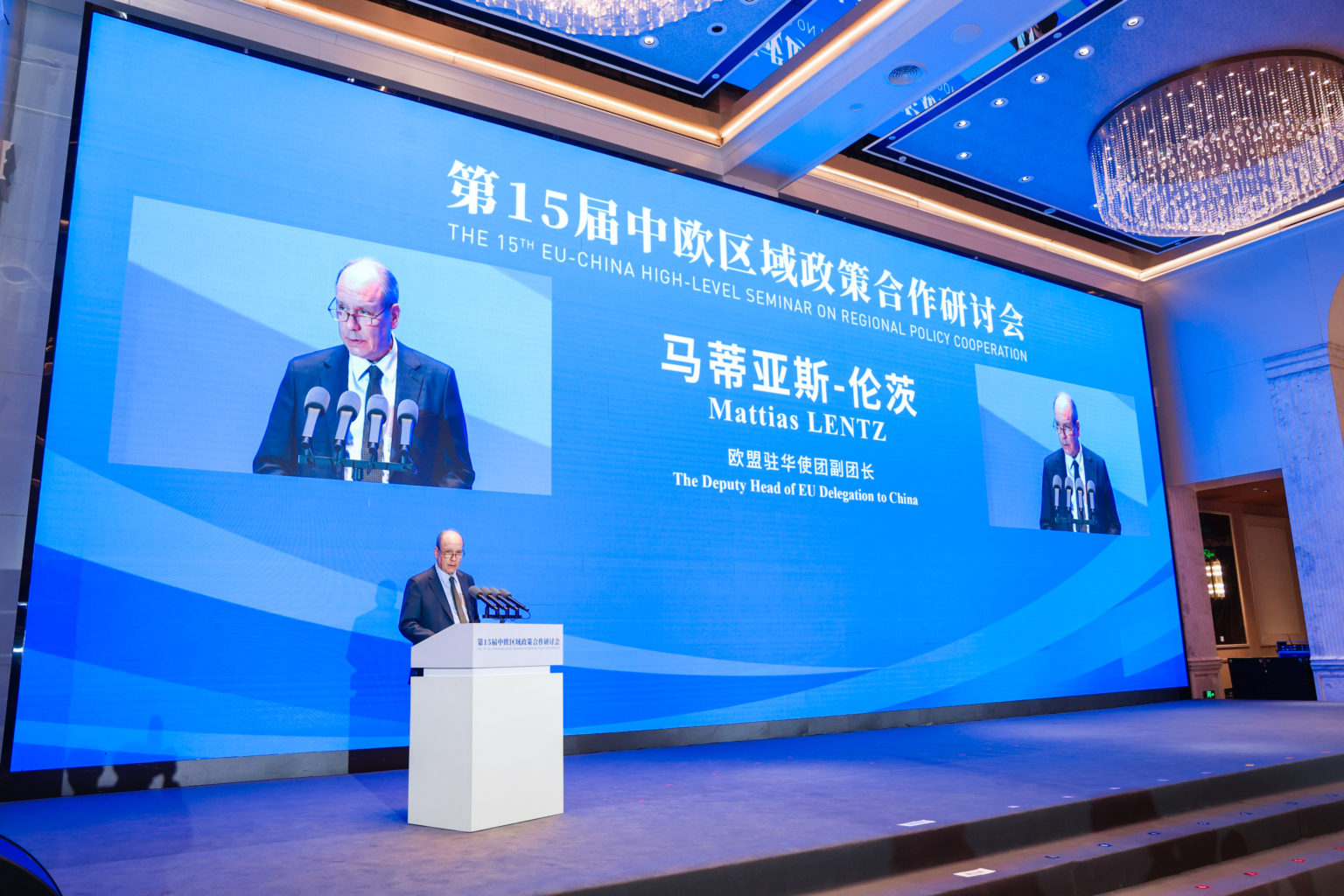
Elisa Ferreira, the European Commissioner for Cohesion and Reforms, emphasised the importance of cooperation in achieving ambitious goals and progress towards a carbon-neutral economy. In her video speech, she reflected on the value of cooperation, “If you want to go fast, go alone, but if you want to go far, go together.” As Ferreira noted, cities and regions have been at the forefront of managing crises and promoting sustainable practices, from pandemic response to waste reduction and energy efficiency. Despite challenges, their commitment to cooperation remains strong for managing territorial changes, emphasising the quadruple-helix approach involving public authorities, the research community, business sector, and civil society.
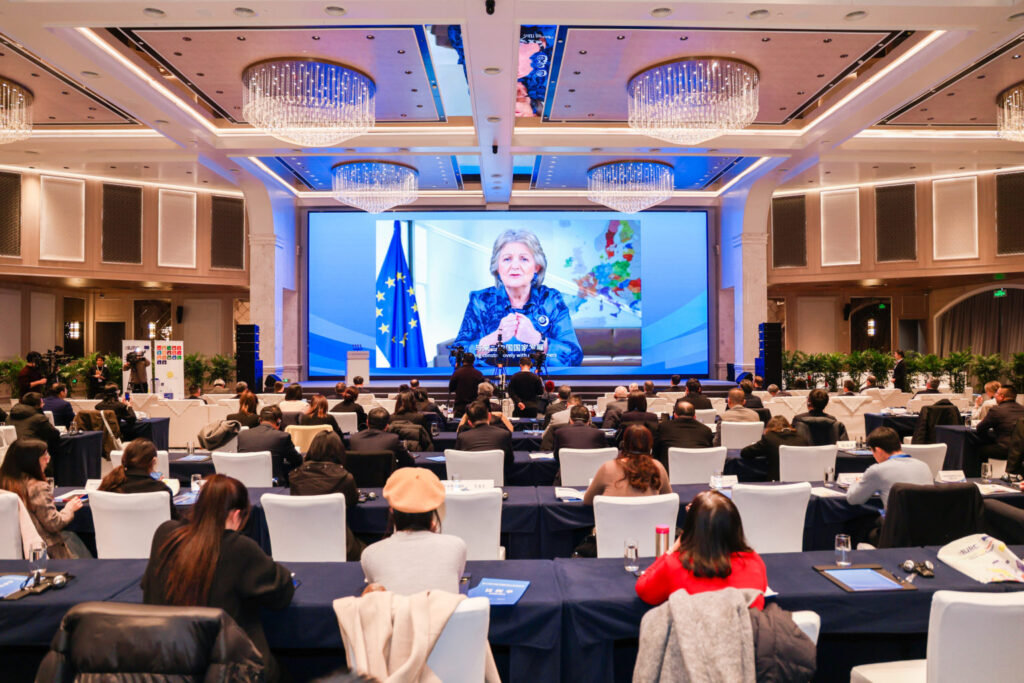
LIN Kang, Vice Director of the Jiangsu Development and Reform Commission, highlighted Taicang in Jiangsu Province´s vitality and the historical significance of EU-China exchanges, emphasising the economic engagement in sectors like renewable energy and advanced manufacturing. He invited further exchanges in sustainable development strategies in Jiangsu province to explore new opportunities and partnerships for mutual growth.
Sustainable and Creative Partnerships: MoU Signing Ceremony
Moderated by Alexandra Lehmann from the EU Delegation to China, the MoU signing ceremony celebrated the achievements of various pilot cities and regions, emphasizing the partnership’s commitment to decentralized cooperation for sustainable growth.
The ceremony highlighted several key cooperations ranging from establishing a Green Design Center between NCI-Bologna and Yangzhou to promoting sustainable agriculture, cultural tourism, and education between Lazio Region and Zhengzhou, as well as enhancing Transit-Oriented Development and Low-Carbon Urban District cooperation between the Stuttgart Urban Region and Suzhou Taicang.
New partnerships were announced, including cooperative efforts between Sisak-Moslavina County and Chongqing Zhongxian in the capacity building in the gaming industry and tourism, and between the Alentejo Region and Dalian in green port, cultural tourism, and vocational education. Additionally, partnership in e-commerce and renewable energy between the Region of Western Greece and Hangzhou was established. A highlight was the open cooperation initiative proposed by Chongqing Liangjiang New Area, aiming to enhance cultural, exhibition, design, and modern urban cooperation with European cities. The initiative received positive responses from representatives of Ljubljana Urban Region, Bacău County, Sofia, and Bielsko-Biała, underscoring a shared vision for expanded cooperation beyond economic and technical fields into creative and cultural industries.
Keynote Speech: Renewal and Deepening of EU-China Urban and Regional Cooperation
Dr. Ronald HALL, Senior Advisor in DG REGIO of the European Commission, opened his speech with New Year’s greetings, aligning it with the renewal and prosperity which resonates with the IURC project. He discussed the challenges faced by the project during the pandemic and highlighted the strategic importance of the partnership in promoting sustainable development and the tangible outcomes of EU-China cooperation.
Dr. BAO Shujun from the International Cooperation Center of the China National Development and Reform Commission reflected the EU-China Regional Policy Cooperation Mechanism´s achievements: fostering wide cooperation, fostering mutual learning, and mobilising diverse stakeholders. She outlined the future directions for cooperation, especially in industry, green and low-carbon transition, economic partnerships, and digital transformation.
Panel Discussions: Outcomes and Blueprint for Cooperation
The panel discussions, moderated by Jürgen Paulusson, share insights, experiences, and vision for cooperation in areas such as sustainable urban development, cultural exchange, green technology, and jobs & education. The panels were organised in three sessions, focusing on thematic networks of urban and regional cooperation.
WANG Qian, the team leader of IURC-China, retrospected the IURC-China´s achievements in fostering partnerships through diverse cooperation models, facilitating numerous trainings, webinars, and bilateral meetings, and producing significant knowledge products. The project set a foundation for continued cooperation towards the Sustainable Development Goals.
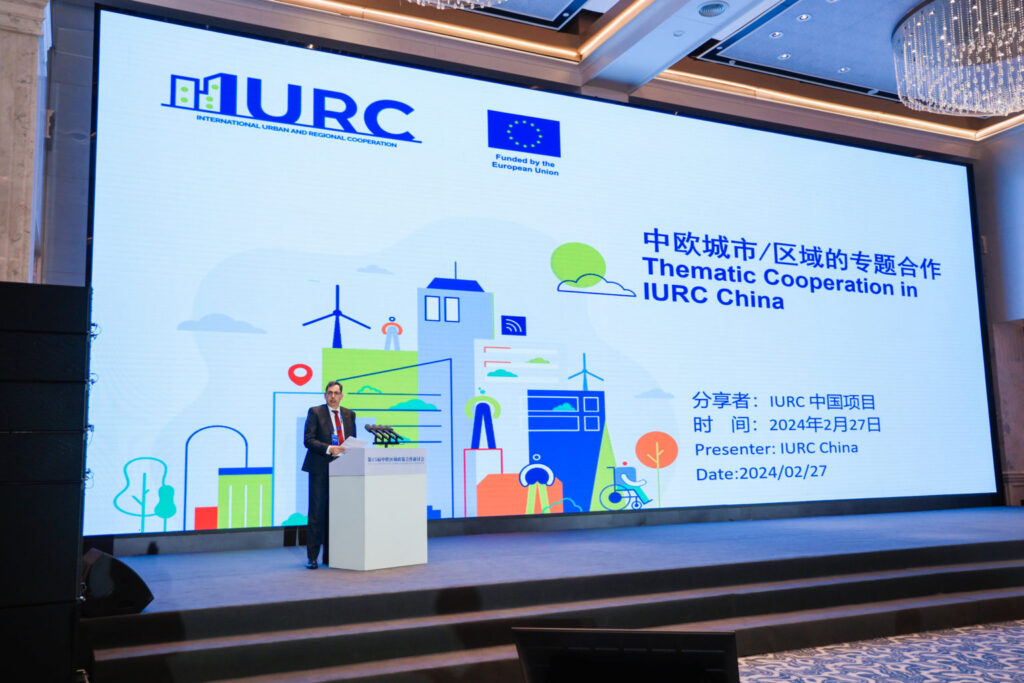
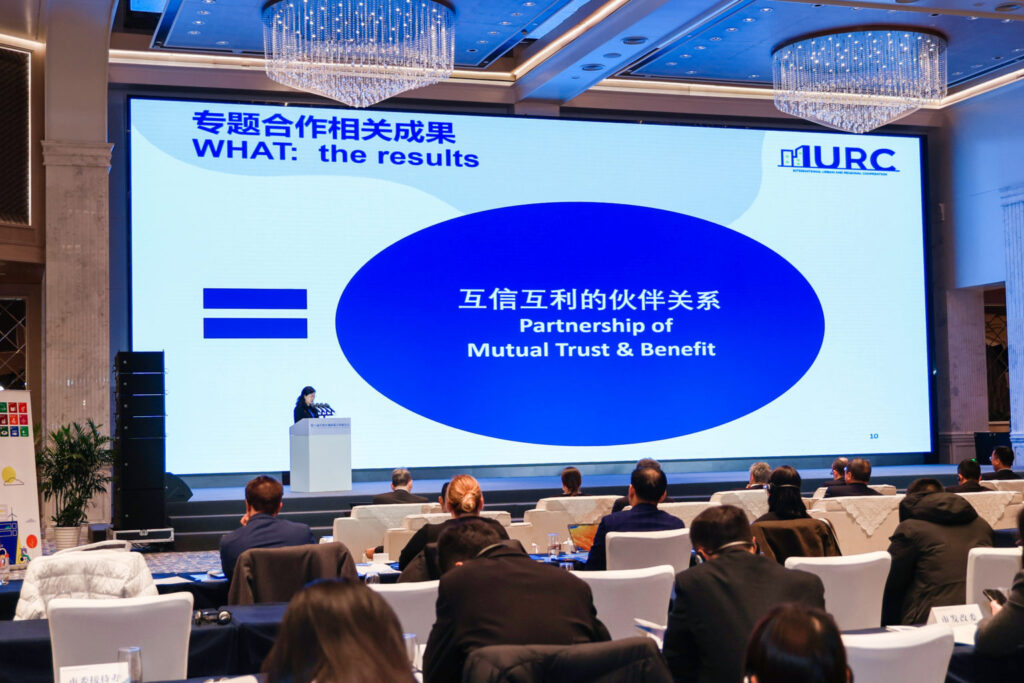
Panel 1: Ecological Transition and Green Development
Moderated by Rita Merkle, the discussion focused on ecological transformation and green development. Representatives from partnerships of Zhengzhou-Lazio Region, Hangzhou-Region of Western Greece, and Alentejo Region-Dalian shared insights into their collaborative efforts to promote green growth, climate resilience, and cultural and economic exchanges. Key themes included the significance of international cooperation, the knowledge exchange, the role of digital economies, and the importance of joint green initiatives. The discussions highlighted successful partnerships that leverage differences to find common ground and mutual benefits, demonstrating the IURC’s role in fostering global sustainability and bridging differences through cooperation.
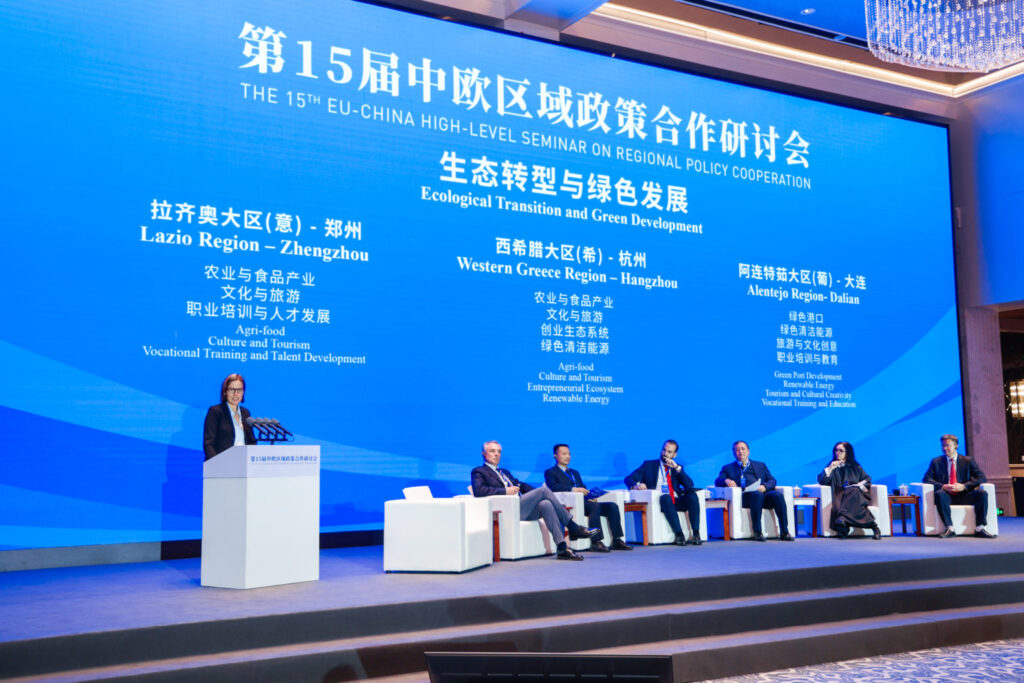
Panel 2: Urban and Regional Renewal and Social Cohesion
The panel, moderated by Keru Feng, focused on urban and regional renewal and social cohesion, highlighting the role of international cooperation in achieving sustainable and people-centred urban development with initiatives like the New Europe Bauhaus and “new-type urbanization” for enhancing liveability and green economy in cities. Representatives from Suzhou Taicang, Stuttgart Urban Region, Guangzhou Development Zone, Bari, Yangzhou, and NCI-Bologna shared their experiences and good practices in green and low-carbon development, smart mobility, digital transformation, and cultural integration, highlighting the importance of mutual respect, green development, and international cooperation frameworks like IURC for achieving notable progress in sustainable urbanisation. The discussion concluded with participants reflecting on the concepts of the future cities. The message, through resilience, happiness, inclusivity, sustainability, and creativity, is the importance of building urban environment that prioritize the well-being of the citizens.
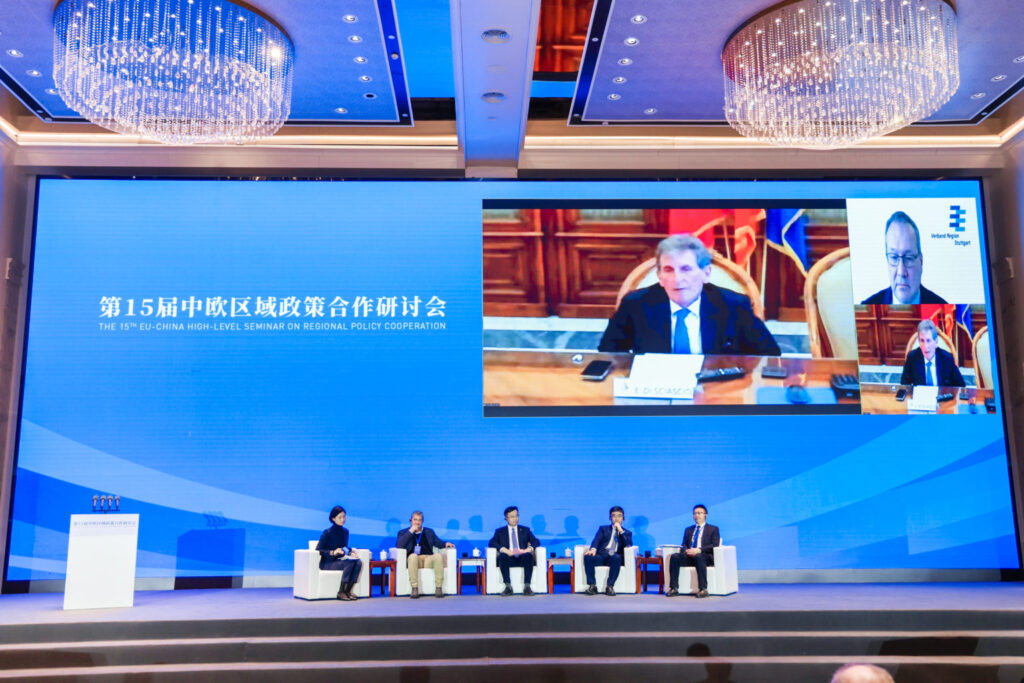
Panel 3: Creativity, Sustainability, and Carbon-Neutral Strategies
Facilitated by Franka Gulin, the third panel presented the potential for meaningful collaboration despite the contrast and differences between European and Chinese cities and regions. Representatives from Sofia, Bacău County, the Ljubljana Urban Region, Sisak-Moslavina County, and Chongqing Liangjiang New Area discussed their collaborative efforts and action plans on protecting historical heritage, fostering cultural exchanges, the gaming industry and further cooperation in culture and creative industries. The discussions reflected a shared optimism about the diverse cooperations, emphasizing creativity, sustainability, and the pursuit of carbon-neutral objectives..
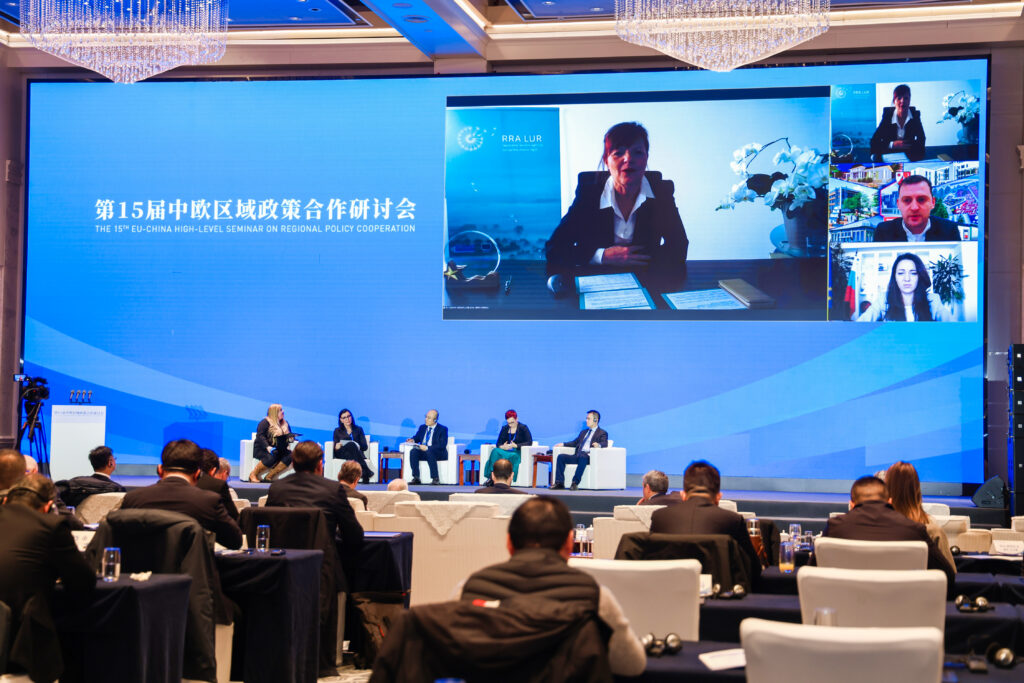
Closing Remarks: Achievements and Future Directions
Ramon Lopez Sanchez, Principal Administrator for International Relations of DG REGIO in European Commission, congratulated the program’s evolution into a significant tool for urban and regional development. Despite starting under challenging circumstances, the IURC has facilitated numerous partnerships and MoU signings, showcasing resilience and progress. He thanked the Chinese National Development and Reform Commission, the EU Delegation to China, and all participants for their roles in these achievements. “Support, dialogue, and cooperation are more important than ever before to continue our sustainable development efforts so no territory is left behind and to rethink our cities, our territories, in light of global challenges, but also crucially, of citizen’s needs”. He stated, highlighting the potential for sustained partnerships beyond the program’s current framework, “We will build on the IURC success so far through the launch of a new cooperation phase by early next year to consolidate ongoing cooperation efforts and provide cities and regions on both sides with new networking and knowledge sharing opportunities.“
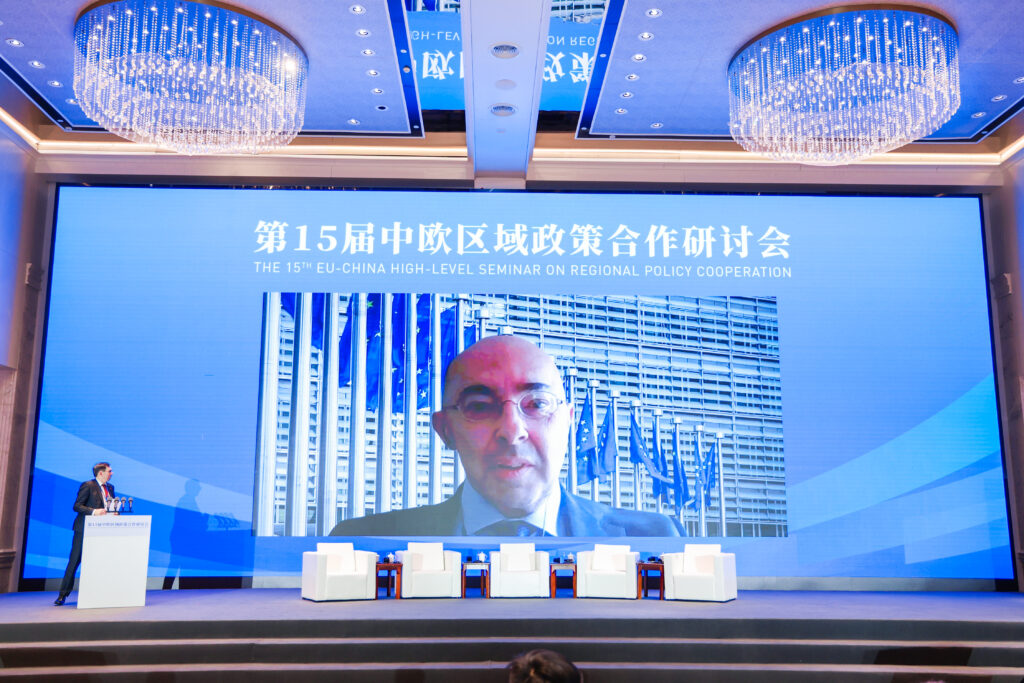
Final Publication of IURC-China
The IURC-China initiative achieved success in enhancing partnerships and facilitating the exchange of knowledge among European and Chinese cities and regions. It developed 9 city and regional cooperation partners in 3 thematic networks, bridging over 40 cities and regions across China and Europe. During 2021-2023, participants engaged in 78 thematic events, resulting in the creation and dissemination of more than 50 knowledge products.
Find out more about the result of the cooperative activities between 2021-2023 in the final publication of IURC-China.
Continued Commitment
IURC-China has demonstrated the power of shared knowledge and collaborative learning in urban and regional development. With the support from governments, academic institutions, social organisations and business sectors, a bright future presents ahead, the project has paved the way for sustainable, inclusive, and resilient communities worldwide. “This is not the beginning of the end but the end of the beginning.” The legacy of the IURC programme ensures that the journey of international urban and regional cooperation is far from over, with more chapters yet to come.
